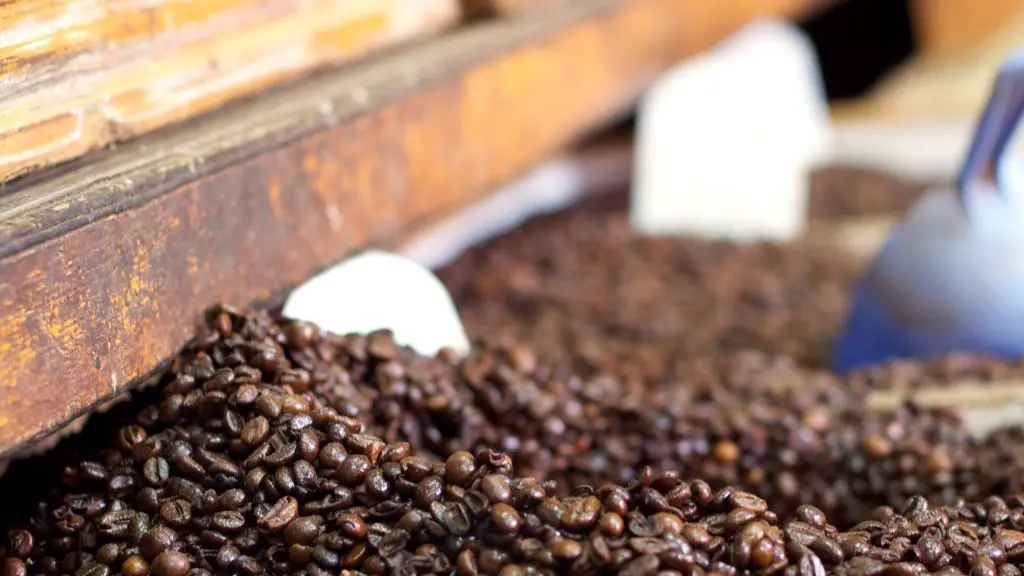Can Breastfeeding Women Drink Coffee?
Although coffee seems relatively harmless for most adults, there are some doubts about how safe it is for breastfeeding women. Some medical experts believe that coffee should not be part of their daily diet, while others feel that there is no harm in moderate consumption.
When it comes to determining whether breastfeeding women should consume coffee, experts agree that certain factors should be taken into consideration. Firstly, the caffeine content in coffee needs to be considered – too much caffeine can cause overstimulation in babies. Therefore, breastfeeding women should be aware that it is advised to have no more than 200mg of caffeine per day; anything above this can be detrimental to their health.
Apart from caffeine, experts advise against the presence of other chemicals found in coffee, particularly for individuals with sensitive systems, such as pregnant women or newborns. These compounds, such as chlorogenic acid, can reduce the amount of milk produced by breastfeeding women and adversely affect the flavor of their milk.
Experts also suggest that breastfeeding women should try to limit their consumption of coffee in order to maintain their health and the health of their baby. A good measure of intake is to have no more than two cups per day, and only after feeding the baby so that the caffeine doesn’t reach its digestive system. Additionally, mothers need to be aware that three or four cups of coffee isn’t necessarily healthier than two; rather, it can affect the baby’s sleep schedule and lead to crankiness.
When it comes to coffee consumption, breastfeeding women can also benefit from alternatives such as tea, juices and energy drinks. While these beverages contain fewer calories, they also contain significant amounts of caffeine, and pregnant or breastfeeding women should still consider the amount of caffeine they are consuming daily.
The effects of coffee on breastfeeding women can vary from one individual to another, so it is advisable that mothers speak to their healthcare provider before consuming it. Ultimately, it is important for breastfeeding women to take into account their own body and the baby’s needs when choosing what to consume.
Caffeine Intake and its Effects on the Baby
Caffeine is a psychoactive drug that can have a direct impact on the baby’s nervous system and brain development. Some studies suggest that exposure to caffeine during the breastfeeding period can lead to a reduced concentration and alertness in the baby. Additionally, research shows that higher caffeine intake can also be linked with sleeplessness and fussy behaviour in babies, especially before bedtime. This can be attributed to the fact that caffeine can reduce melatonin levels in the baby, which is considered to be the ‘sleep hormone’.
The same research reveals that caffeine can also have an impact on the baby through the mom’s milk. One study examined the amount of caffeine in the breast milk of women consuming two cups of coffee, revealing that levels varied from 0.19-2.52mg/dl. However, the effects weren’t witnessed until 8 hours after the ingestion, proving that the drug takes time to reach the baby.
As demonstrated, breastfeeding mothers should be mindful of their caffeine intake throughout the day; however, this doesn’t mean that they should eliminate coffee entirely from their daily diet. Instead, it is key to practice moderation and remain mindful of their baby’s needs and behaviour, taking into account the effects of the drug.
The Benefits of Drinking Coffee while Breastfeeding
Despite the potential risks that come with caffeine intake, new research suggests that breastfeeding women can also benefit from drinking coffee. Studies have revealed that mothers who drank moderate amounts of coffee experienced an improved mood, cognitive performance and overall wellbeing. They have also reported decreased fatigue, increased alertness and improved concentration.
Additionally, some research suggests that coffee can also benefit breastfeeding mothers nutritionally. One study examined the effects of coffee on nursing infants, revealing that the beverage attenuated deficits in weight gain associated with Western diets. In addition, levels of antioxidants in the baby, such as thiamine, vitamin B and folate, increased significantly in mothers consuming a moderate amount of caffeine.
These findings prove that coffee intake might not be detrimental for mothers nursing their babies. As long as intake is monitored and poses no harm to the baby, breastfeeding mothers may experience beneficial effects from their coffee consumption.
Choosing the Right Coffee for Breastfeeding Women
It’s important for breastfeeding women to choose carefully when it comes to selecting their coffee. It is suggested that opting for freshly ground coffee beans is a great choice, as they contain more qualities due to the intact cells walls. While regular instant coffee also has benefits, they can be more unstable due to the lack of cell walls.
Apart from this, some experts suggest that buying coffee that contains natural contaminants can yield better results. These are chemicals that are naturally absorbed by the plants, and can act as neuroprotectors, providing beneficial effects not just for the women, but also for the babies.
Ultimately, when it comes to mothers breastfeeding their baby, the key is to remain mindful of their own health and the health of the baby. It is advised that mothers do their research before consuming coffee, and if there are any doubts, consulting a healthcare professional is the best course of action.
How to Wean Off Coffee While Breastfeeding
When it comes to weaning off coffee while breastfeeding, the most important thing is to remain consistent. It is recommended that breastfeeding women gradually decrease their coffee intake so as not to cause any distress to the baby. By taking this method, the body can adjust to the decreasing presence of caffeine, and the baby will remain unaffected.
It’s also advisable to drink plenty of water during the weaning process. Water is the best source of fluids when cutting down on coffee; in fact, it helps flush out alkaloids that remain from the coffee, thus speeding up the process. Additionally, herbal teas or natural energy boosters like Lucuma powder or raw cacao should also be taken into consideration.
These measures will ensure that breastfeeding women are able to reduce their coffee intake without causing any harm to their baby. As mentioned previously, it is essential that mothers remain mindful of their body and the baby’s needs before choosing a method of weaning.
Conclusion
It is certain that the café culture we live in can be hard to let go of, particularly when it comes to breastfeeding women. As much as it is a necessary part of our daily lives, it is important to practice moderation, doing our best to protect our own health and that of our baby. As demonstrated, while coffee can have beneficial effects on breastfeeding moms, controlling the amount of caffeine and choosing the right beans is key to staying healthy.




